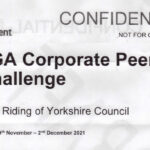NYP Policy on “Paedophile Hunters”
by TIM HICKS
~~~~~
Background
I write with a follow up to an ethical dilemma in British Policing which was covered in an article published in the NYE on the 19th September 2017: An ethical dilemma. Police use of civilian paedophile hunters.
- Definition: “Paedophile hunters” are unregulated groups of adults that set up a false identity as an underage child in internet chat rooms. They then wait for adults to contact them and begin on-line grooming by asking for sexual content, contact or acts. They collect evidence of this.
Different groups of “paedophile hunters” use different approaches. Some pass their evidence on to the police. Some arrange to meet with the paedophile and confront him, then post a video on line. A video of a “sting” operation of this nature can be seen here.
Figures obtained by the BBC show an increase in the number of cases in which evidence gathered by paedophile hunters is being used. More than 44% (114 out of 259) cases of the crime of meeting a child following sexual grooming used this evidence in 2016, compared with 20 out of 176 cases in 2014 (11.3%).
According to this BBC Report, evidence from so-called paedophile hunter groups was used to charge suspects at least 150 times last year. A Freedom of Information request, sent to every police force in England and Wales, showed a seven-fold increase in the use of such evidence from 2015. Twenty-nine of the forty-three forces approached (67%) provided data.
NYPs response to an FOI request can be seen here, which gives the number of charges that have been brought for sexual grooming in 2015 – 2017 and how many times it has used “paedophile hunters”.
The Dilemma
At the time “An ethical dilemma: Police use of civilian paedophile hunters” was written there was no National Police Chiefs Council (NPCC) or College of Policing guidance on use of civilian “paedophile hunters”, or on the use of evidence provided by them. However, there was ongoing debate amongst Chief Police Officers on this topic and feelings were understandably very mixed.
The former head of the Child Exploitation and Online Protection Agency, Jim Gamble, favored consideration of formal police use of “paedophile hunters”. He described the problem of internet child exploitation as a “tsunami” which he said was “almost overwhelming” for his former colleagues:
“I doubt there are more than 30 officers across the UK who are actually online at this very moment masquerading undercover to engage that lower hanging fruit which is out there. They simply haven’t got the resources to meet this head on or to even create an active and meaningful deterrent. They have to be extremely unlucky to be caught in some instances so we do need to turn the tables.”
Mr Gamble called for 1,500 volunteers to be recruited, which he estimated would cost less than £2m a year.
“I’d like to see the government engage in a sensible conversation about how we can empower and educate ordinary citizens across the UK by giving them the opportunity to sign up to a special digital detectives programme.”
However, other senior officers are opposed to this idea. Chief Constable Simon Bailey, the national lead for child protection at the National Police Chiefs’ Council (NPCC) is quoted by the BBC, as saying:
“vigilante groups are putting the lives of children at risk. They might not perceive it that way, but they are potentially compromising our operations. I’m not going to condone these groups and I would encourage them all to stop, but I recognise that I am not winning that conversation.”
On co-operating with “paedophile hunters”, Chief Constable Bailey said:
“I think that’s something we’re going to have to potentially have to look at, yes, but it comes with some real complexity.”
His views are covered in this Guardian article from September 2017.
NPCC policy on use of “paedophile hunters” by the police
In considering the issue of cooperating with “paedophile hunters”, the NPCC had essentially three options. These were:
- Allow the current situation of unregulated operation of paedophile hunters to continue.
- Regulate the operation of “paedophile hunters” by issuing a code of practice and establishing formal liaison, and co-operate with them.
- Recruit them as police volunteers (the solution advocated by Mr Gamble above).
The NPCC view on this was issued in a NPCC Statement issued on the 18th of September 2017 after the NYE article on this subject had been written, but the day before the article was published. It is shown below:
Police approach to paedophile hunters has not changed
Figures obtained by the BBC show 11% of court cases in 2014 for the crime of meeting a child following sexual grooming used vigilante evidence, rising to 44% in 2016. NPCC says while we may consider working with these groups in certain instances, our overall approach has not changed.
National Police Chiefs Council Lead for Child Protection, Chief Constable Simon Bailey said:
We understand the desire to protect children but any member of the public who has information about child sexual abuse, online or otherwise, should get in contact with the police so we can investigate and bring people to justice. So called paedophile hunters are taking risks they don’t understand and can undermine police investigations. Most importantly, unlike our officers, they have no way of safeguarding child victims.
Our approach to these groups has not changed. We may consider working with these groups in certain instances, if it helps us protect children and we can manage the risks of their involvement. But this is not the solution to the problem of abuse. We are tackling child abuse by using undercover officers and covert resources to catch those seeking to groom children online. We need technology and software companies to support us by doing more to prevent offenders using their platforms to prey on children.”
In his most recent statement on paedophile hunters, the National Police Chiefs’ Council Lead for Child Protection, Chief Constable Simon Bailey said:
The increase in these groups is symptomatic of the increasing scale of child sexual abuse that police are dealing with. It reinforces the need for technology companies to do more to prevent offenders using their platforms to prey on children and for children to be educated about healthy relationships and staying safe online.”
It causes me some concern that there has been national press comment in the Daily Mail and The Times in January 2018 that:
“Police have been told to stop the rise of paedophile hunters after the number of groups trying to snare online child abusers rose to more than 75. They must now investigate any potential offences committed by the vigilantes, as well as the people they accuse of trying to groom children. The new rule is included in internal guidance for detectives which was handed out last year and obtained by The Times.”
The National Police Chiefs’ Council (NPCC) guidance tells officers not to work with these groups or endorse their activities.
I understand that this guidance is draft and not adopted as policy by the NPCC. The NPCC press office confirmed:
“The NPCC is clear that law enforcement will not and should not work with “Paedophile Hunter” groups. The NPCC has never advocated using these groups as an extension to policing and advocates that they cease their activity and leave it to law enforcement. That being said, the NPCC recognises that police forces are duty bound to investigate allegations when presented evidence.”
This an entirely different situation to that which is described in the comments in the Times article above. The NPCC appears to have gone for option 4:
- Allow the current situation of unregulated operation of paedophile hunters to continue. Whilst on the one hand holding out that “We may consider working with these groups in certain instances, if it helps us protect children and we can manage the risks of their involvement” and trying to arrest “paedophile hunters” on the other.
This seems to me to be a contradiction. In particular stating that the police may work with “paedophile hunters” is actually encouraging them in this activity. Further, it also seems to me wrong that the NPCC issues a policy statement to the public, then simultaneously issues confidential operational guidance to police officers which conflicts with it.
NYP policy on use of “paedophile hunters”
Individual Chief Constables have discretion on whether or not to implement NPCC guidance.
Following the arrest of a man from Richmond, North Yorkshire Police has issued statement of its position on “paedophile hunter” groups:
“North Yorkshire Police will act appropriately on any information which is brought to our attention.
However, our position on so-called paedophile hunter groups reflects the position of the National Police Chiefs’ Council, in that we understand the desire to protect children but any member of the public who has information about child sexual abuse – online or otherwise – should get in contact with the police so we can investigate and bring people to justice.
Such groups are taking risks that they do not understand and which can undermine police investigations. Most importantly, unlike our officers, they have no way of safeguarding child victims.”
Full report from Richmondshire Today here.
The implication of this being that NYP would prefer not to work with “paedophile hunter” groups and may actively investigate them as criminals. The above arrest was made on the basis of information provided by a “paedophile hunter”.
The police will always believe that they are the only ones that can investigate crime. Yet the above BBC Report indicates that in 2017, 47% of the cases of the crime of meeting a child following sexual grooming used evidence from so-called paedophile hunting groups. The figures for NYP (Question 6) (here) are much lower, indicating that NYP is unable to exploit “paedophile hunter groups” to obtain evidence with the same success as other forces.
It must therefore be a concern that this valuable source of evidence will probably be deliberately destroyed by the police, leading to a drop in convictions and another catastrophic child protection failure by NYP.
The issues are well explored in this Good Morning Britain interview with a “paedophile hunter” who preferred to call himself an “enforcer”.
The wider issue in policing
There is a wider issue here. There have recently been a series of public and inexcusable failures by the police to prosecute paedophiles and child exploitation gangs, which has changed the public perception of the police. In my opinion the major reason for the existence and increase of these voluntary “paedophile hunter” groups is widespread dissatisfaction and lack of confidence in the capability and determination of the police to investigate offences of online grooming. A few examples:
North Yorkshire Police and the Savile/Jaconelli Ring
On the 28th of March 2018 Following a recent successful prosecution of a man for a sexual offence against a child in Filey, NYP issued a report on its website, which emphasised the importance of victims of sexual abuse coming forward:
If you have been the victim of sexual abuse, whether it is happening now or in the past, please contact the police. Even if it is not possible to put an offender before the courts, it’s important that you are offered the support and advice that is available. Your information could also help to protect other victims and help the police form a wider picture of offending.
We appreciate that telling the police what has happened takes courage. It is not easy reliving such distressing situations. We understand this and have specially trained officers who will guide you through the process as well as signposting you to other agencies who can help you.
Child sexual abuse and exploitation is a foremost priority for all police forces and all reports will be fully investigated. Please do not suffer alone, if you have been abused, please report it.
The NYE are not “paedophile hunters”, but our experience of exposing the Jaconelli/Savile paedophile ring that operated openly in Scarborough with the full knowledge of Scarborough CID, was that NYP were not remotely interested in getting to the truth, or the welfare of victims. It was only interested in covering up evidence of its own past failings. BBC exposure of NYP here.
Despite the evident catastrophic failure of North Yorkshire Police to act, no police officer has been punished for failing to protect children, or for trying to cover up the scale of the offending. NYP investigation here.

South Yorkshire Police CID and the Rotherham child sexual grooming scandal
There are currently ninety-eight Independent Office of Police Conduct (IOPC) investigations into South Yorkshire Police over its failure to investigate the Rotherham child sexual exploitation scandal. It remains to be seen if any police officer will face misconduct or criminal charges as a result.
Interestingly, Rotherham Council’s Director of Child Safeguarding from 2004 to 2009 was Pam Allen.
Pam Allen was thereafter employed by East Riding of Yorkshire Council as Head of Children and Young People Support and Safeguarding Services at ERYC. This prompted calls for an inquiry by Beverley & Holderness MP, Graham Stuart. She has now retired following extensive criticism from Councillor Andy Strangeway (Independent).
Greater Manchester Police and the Rochdale child sexual grooming scandal
As with the Scarborough and Rotherham scandals, Greater Manchester Police (GMP) failed to investigate allegations of child sexual abuse in Rochdale.
Most concerningly:
- One dedicated social worker, Sara Rowbotham, made 181 referrals detailing the abuse and sexual grooming of young people between 2005 and 2011, lost her job.
- Dedicated and competent police officer Detective Constable Maggie Oliver resigned in disgust over the attitudes prevailing in GMP CID that allowed the abuse to continue unchecked.
Conversely:
- Seven detectives were served with misconduct notices and given management advice, but were not punished in any meaningful way.
- One Detective Inspector who had a case to answer retired before the inquiry could be completed.
- No senior officer has faced misconduct charges
In short, the whistle-blowers were forced out and those guilty of misconduct were protected. Exceptionally good and detailed Manchester Evening News report here.

GMP Detective Constable Maggie Oliver
A straight and dedicated police officer who resigned from a corrupt and incompetent GMP CID
Summary
This illustrates another issue for the police and regaining the trust of the public over their ability or intent to investigate the abuse of children. When things go wrong, those responsible must be held to account for them. Otherwise public confidence is undermined and there is no sanction or incentive to deter/prevent future misconduct on an ongoing basis.
It must be wrong for a senior Council safeguarding official that failed catastrophically to protect children in one Council, then moves effortlessly into a similar role in another.
It must also be wrong for a detective to evade justice by retiring prematurely, to evade disciplinary action, or to pre-empt the serving of misconduct papers on him. Yet I predict that a number of officers will be allowed to retire to evade misconduct investigations or prosecution, as the investigations into police actions continue.
The confusion at the heart of this issue
NYP, the Police and Crime Commissioner for North Yorkshire (PCCNY) and the NPCC were all provided a draft of this article and asked for a comment:
- The NPCC press office responded helpfully with the above quote of Chief Constable Bailey’s most recent statement on “paedophile hunters” above.
- The PCCNY refused to respond on the basis that: “As a matter of operational policy, this is a matter for the Chief Constable so needs to be directed to him. We can see that you have referred it to the police and therefore we will let them respond to you as they see fit”.
- NYP did not respond.
This is illuminating. I am only seeking clarification on what NYP policy on arresting “paedophile hunters” is. This should not be a controversial request; it only requires someone to say what policy NYP are following. Yet NYP has not responded to it. The situation appears to be that either no one in NYP knows for certain what the policy is. Alternatively, NYP does have a policy but is just refusing to inform the public through the media on what it is, which is equally unsatisfactory.
The contradiction between the public NPCC statement and the confidential guidance obtained by The Times would seem to indicate that the NPCC and NYP have still not resolved the policy issues associated with this topic. As would the thunderous silence on this aspect of the issue from NYP.
A personal view
At the end of my article “An ethical dilemma: Police use of civilian paedophile hunters”. I expressed a personal view that because the police are open to voluntary assistance in some areas. The course of action Mr Gamble advocates of recognising that these people have a skill base that is useful to the police, regulating them and then utilising their skills may be viable. This would increase the level of skilled manpower available to the police at low cost. Whilst simultaneously reducing the risk of police operations being compromised and preventing innocent people being harassed by paedophile hunting vigilantes. But it will take a leap in police thinking and very strict controls.
There have been several instances of offences being committed as a result of investigations by “paedophile hunters”. BBC Report here. People have alleged they had their lives ruined after they were wrongly accused. One man who was accused of an offence by “paedophile hunters” recently committed suicide and his fiancée had to leave her home after his address was published on social media. (Very good Metro article covering this here). This must be a concern for the police, who also have a duty to prevent harassment and protect persons who are accused of crime, but are awaiting trial. Consequently, I am opposed to the current situation of unregulated operation of “paedophile hunter” groups.
I remain of the personal opinion that option 3 above is the best option. However, I suspect the police are just not able to make the leap in thinking to accommodate it.
NSPCC advice on protecting your child from internet grooming can be read here.













